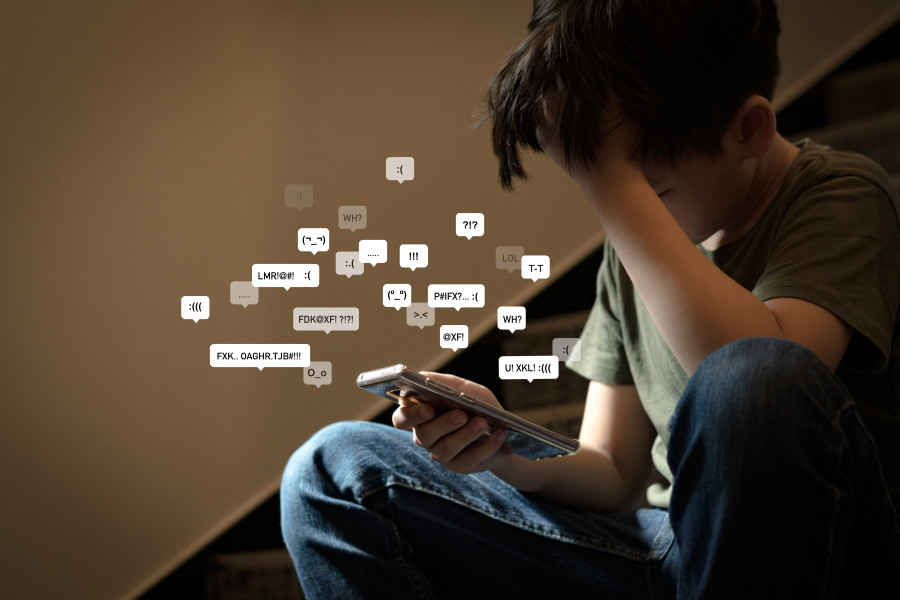Culture & Lifestyle
Social media’s ‘feel-good’ trap
Psychologist Raut discusses how chasing cheap dopamine can lead to decreased life satisfaction.
Anish Ghimire
These days, with just a tap or a swipe, we can instantly connect with friends and family, stay updated on the latest news and indulge in a seemingly endless stream of entertainment. But lurking beneath the surface lies a phenomenon that’s affecting our lives in more ways than one: the instant dopamine rush provided by social media.
Dopamine, often dubbed the “feel-good” neurotransmitter, plays a crucial role in our brain’s reward system. It’s released when we experience pleasurable activities, like eating our favourite food or receiving praise. And social media has tapped into this neurological mechanism, offering a constant stream of notifications, likes and comments that serve as quick dopamine hits.
Psychologist Raju Raut provides further insights into the effects of instant dopamine. Currently working in Shankar Dev Campus, Raut did a postgraduate in Counselling Psychology and a Master’s in Psychology.
How does constant exposure to social media trigger dopamine release in the brain?
Constant exposure to social media triggers the release of dopamine in the brain through various reinforcement mechanisms. Positive reinforcement occurs when users receive likes, comments, or shares, which act as rewards, making them feel good and encouraging continued use of the platform. Intermittent reinforcement, where rewards are given unpredictably, creates anticipation and excitement, keeping users engaged over time.
Negative reinforcement happens when individuals use social media to escape negative emotions, such as loneliness or stress, temporarily alleviating them. This encourages continued use of social media as a coping mechanism. Additionally, punishment can play a role in social media addiction, as individuals may feel inadequate or jealous when comparing themselves to others on social media, reinforcing the behaviour of seeking validation.
How does chasing cheap dopamine affect our brain’s reward system over time?
Constantly engaging in activities like social media or gaming can lead to the brain getting used to feeling good and needing more and more stimulation to feel satisfied. This can make it harder to enjoy normal activities and create a strong desire to keep using social media or gaming. When people can’t use these things, they might feel sad and find it hard to make decisions or reach goals. This constant pursuit of pleasure can mess up the brain's natural reward system, making it harder to enjoy everyday things and wanting more artificial stimulation.
Using social media for instant pleasure can harm mental health by affecting important mental processes like delaying gratification and controlling impulses. Studies like the marshmallow experiment show that waiting for rewards is linked to better focus and control.
However, using social media for quick rewards can weaken this ability, making it harder to focus. Also, getting instant rewards on social media can make impulsive behaviours worse, making it tough to control impulses and make good decisions. This can make people feel worse about themselves and more stressed. Quick rewards on social media might not make people feel good for long, leading to less happiness overall.
Does chasing cheap dopamine lead to decreased satisfaction in life?
The idea of cheap dopamine refers to easily accessible sources of pleasure or satisfaction, like scrolling through social media, binge-watching TV, or eating junk food. While these activities offer immediate happiness, they can harm our mental health over time. Relying too much on these quick fixes can make us less happy with meaningful experiences, such as being with loved ones or pursuing goals.
This can lead to feelings of emptiness, dissatisfaction and addiction. By recognising cheap dopamine and its effects, we can choose more wisely how we find joy and fulfilment, focusing on things that bring lasting happiness.
Are there any parallels between the effects of social media-induced dopamine and addictions to substances like drugs or alcohol?
Similar to drugs or alcohol, social media can be addictive because it activates the same pleasure pathways in the brain. As we continue to engage with social media, we may become more sensitive to its rewarding effects, leading to increased cravings and difficulty resisting. When we’re unable to access social media, we may experience symptoms like irritability, anxiety, or restlessness, similar to withdrawal from drugs or alcohol. This can negatively impact our mental health, affecting our social lives and increasing stress. Social media’s addictive nature can be explained by its influence on the brain's reward system, resulting in cravings, withdrawal symptoms and adverse effects on well-being.
The cognitive-behavioural model of addiction provides insight into why social media becomes addictive for some individuals. This model suggests that addictive behaviours stem from specific thoughts and beliefs that drive excessive social media use. For example, individuals may feel a constant need for validation through likes and comments or fear missing out on others’ activities. These thoughts prompt behaviours like frequent checking of social media, which is reinforced by immediate rewards such as receiving likes or seeing new posts.
What strategies can individuals employ to mitigate the negative effect of artificial dopamine from social media on their brains?
To counteract the adverse impacts of artificial dopamine from social media, individuals can adopt straightforward tactics. Implementing boundaries on social media usage and embracing mindfulness practices like meditation align with self-regulation theory, enabling individuals to take charge of their behaviour and curb excessive engagement.
Involvement in offline pursuits such as spending time with loved ones or pursuing hobbies offers natural dopamine sources, offsetting the effects of artificial stimulation. This approach resonates with the behavioural activation concept of cognitive-behavioural therapy, which advocates for engaging in rewarding activities to boost mood and overall well-being. Moreover, prioritising meaningful face-to-face interactions fulfils social needs, echoing the principles of self-determination theory.




 16.12°C Kathmandu
16.12°C Kathmandu















